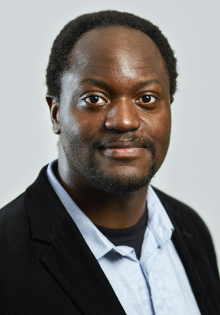Future artificial intelligence (AI) systems, and AI-based robots in particular, must be able to understand and gauge not only their own actions, but also those of others. From now on, researchers from the universities of Bielefeld, Bremen, and Paderborn are permanently consolidating their research in this area at a cross-location centre. At the Joint Research Center on Cooperative and Cognition-enabled AI (CoAI JRC), the expertise of the three strong research partners will make new ways of interaction and learning possible between humans and machines. Unprecedented in Germany, the centre for co-constructive AI is also intended to contribute to the training of the next generation of research and technology leaders who will represent a new perspective on AI in science and society. With this in mind, the CoAI JRC is planning a joint curriculum to inspire and empower young researchers in this field.
At the CoAI JRC, one of the things cutting-edge researchers from the fields of artificial intelligence, robotics, human-computer interaction, medical assistance, linguistics, psychology, and philosophy are working on is developing the foundations for robots with completely new capabilities. The AI systems developed here have the cognitive ability to understand how and why they do things. They recognise their own gaps in knowledge themselves. However, the AI systems also have an interactive capability to subsequently acquire new skills when interacting with humans. To this end, the researchers are exploring a new conceptual framework for intelligent action: the concept of what is known as co-construction refers to cognitive and interactive mechanisms that help humans and machines to master tasks together. This unites the expertise on co-constructive AI from no less than three research locations in one hub.
An integral part of the research at the CoAI JRC is what is known as the Virtual Research & Training Building (ViB)—a digital laboratory that will be accessible to the international scientific community in the spirit of open, transparent, and participatory research. Robots, environments, and software can be used here as if the researchers were actually present in the laboratory. This makes research data and results available to a broad public, for university teaching, and for further research.
For the universities of Bielefeld, Bremen, and Paderborn, the cross-location centre means increased visibility for their respective and joint research and education activities on artificial intelligence. The university executive boards welcome and support this consolidation of competences. This cooperation is a strategic and sustainable contribution to building the profile of the three cooperation partners. They thank the participating researchers for their commitment.
Professor Dr Michael Beetz, head of the Institute for Artificial Intelligence (IAI) at the University of Bremen, describes the special nature of the AI research conducted at the CoAI JRC: ‘The most flexible, powerful, and reliable learning systems are not ChatGPT or any of the other machine learning systems that are currently attracting so much attention. In fact, it is us humans: through interaction with others, we learn from birth how the world around us works and how we can operate successfully in it. Co-constructive AI takes these skills as inspiration to explore AI systems that are not only able to perform tasks but also help others. In order to do this, these co-constructive AI systems need to understand what their human partners want and are capable of in order to specifically augment their skills.’ At the Bremen location, the diverse and internationally excellent exploratory research on intelligence and cognition in autonomous agents and agent teams in the high-profile area Minds, Media, Machines forms an excellent starting point for achieving the specified research goals of the CoAI JRC in cooperation with the universities of Bielefeld and Paderborn.
Professor Dr Philipp Cimiano, head of the Semantic Computing Group and coordinator of the Center for Cognitive Interaction Technology (CITEC) at Bielefeld University, sees enormous potential here: ‘With the new CoAI JRC centre, we are creating an excellent and unique framework for breaking ground in AI research, which is only possible through interdisciplinary collaboration. CoAI will build on previous research at the Cognitive Interaction Technology Center (CITEC) and explore a new AI paradigm. Unlike current language models such as ChatGPT, this paradigm will allow systems to understand the consequences of their suggestions and give an idea of what it means to act in concert with a human. Without this capability, we can’t create AI systems in the long term that can work with us reliably and that we can trust.’
Professor Dr Katharina Rohlfing, head of the Psycholinguistics research group and the ‘SprachSpielLabor’ at Paderborn University explains: ‘The joint centre allows us to create synergies between the partner universities and to address the underlying mechanisms of co-construction. This way, we achieve the best possible concentration and networking of our existing and future research activities.’ In Paderborn, the focus is on research into intelligent socio-technical systems and the role of co-construction in explanatory processes. Researchers at the universities of Paderborn and Bielefeld have also been investigating this concept since 2021 as part of the German Research Foundation’s Collaborative Research Centre/Transregio 318 ‘Constructing Explainability’, which is dedicated to the topic of ‘Explainability of Artificial Intelligence (AI)’ and whose spokesperson is Rohlfing.
Further information is available online at: https://coai-jrc.de/


